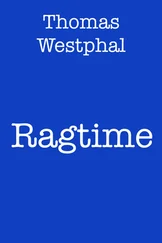Edgar Doctorow - Ragtime
Здесь есть возможность читать онлайн «Edgar Doctorow - Ragtime» весь текст электронной книги совершенно бесплатно (целиком полную версию без сокращений). В некоторых случаях можно слушать аудио, скачать через торрент в формате fb2 и присутствует краткое содержание. Жанр: Современная проза, на английском языке. Описание произведения, (предисловие) а так же отзывы посетителей доступны на портале библиотеки ЛибКат.
- Название:Ragtime
- Автор:
- Жанр:
- Год:неизвестен
- ISBN:нет данных
- Рейтинг книги:4 / 5. Голосов: 1
-
Избранное:Добавить в избранное
- Отзывы:
-
Ваша оценка:
- 80
- 1
- 2
- 3
- 4
- 5
Ragtime: краткое содержание, описание и аннотация
Предлагаем к чтению аннотацию, описание, краткое содержание или предисловие (зависит от того, что написал сам автор книги «Ragtime»). Если вы не нашли необходимую информацию о книге — напишите в комментариях, мы постараемся отыскать её.
Ragtime — читать онлайн бесплатно полную книгу (весь текст) целиком
Ниже представлен текст книги, разбитый по страницам. Система сохранения места последней прочитанной страницы, позволяет с удобством читать онлайн бесплатно книгу «Ragtime», без необходимости каждый раз заново искать на чём Вы остановились. Поставьте закладку, и сможете в любой момент перейти на страницу, на которой закончили чтение.
Интервал:
Закладка:
Evelyn told reporters who met her outside the Tombs that her husband Harry K. Thaw was innocent. His trial will prove my husband Harry K. Thaw is innocent, she said one day stepping into the electric hansom provided her by her august mother-in-law. The chauffeur closed the door. In the privacy of the car she wept. She knew better than anyone how innocent Harry was. She had agreed to testify in his behalf for the sum of two hundred thousand dollars. And her price for a divorce was going to be even higher. She ran her fingertips over the car upholstery. He tears dried. A strange bitter exaltation suffused her, a cold victory grin of the heart. She had grown up playing in the streets of a Pennsylvania coal town. She was the Gaudens statue Stanny White had put at the top of the tower of Madison Square Garden, a glorious bronze nude Diana, he bow drawn, her face in the skies.
Coincidentally this was the time in our history when the morose novelist Theodore Dreiser was suffering terribly from the bad reviews and negligible sales of his first book, Sister Carrie . Dreiser was out of work and too ashamed to see anyone. He rented a furnished room in Brooklyn and went to live there. He took to sitting on a wooden chair in the middle of the room. One day he decided his chair was facing in the wrong direction. Raising his weight from the chair, he lifted it with his two hands and turned to the right, to align it properly. For a moment he thought the chair was aligned, but then decided it was not. He moved it another turn to the right. He tried sitting in the chair now but it still felt peculiar. He turned it again. Eventually he made a complete circle and still he could not find the proper alignment for the chair. The light faded on the dirty window of the furnished room. Through the night Dreiser turned his chair in circles seeking the proper alignment.
5
The impending Thaw trial was not the only excitement down at the Tombs. Two of the guards in their spare time had fashioned new leg irons that they claimed were better than the standard equipment. To prove it they challenged Harry Houdini himself to put them to the test. The magician arrived one morning at the office of the Warden of the Tombs and was photographed shaking the hand of the Warden and standing between the two smiling guards with his arms around their shoulders. He traded quips with reporters. He gave out lots of free tickets. He held the leg irons under the light and examined them carefully. He accepted the challenge. He would escape from the irons at the following night’s performance at the Keith Hippodrome. With the press crowded around, Houdini now proposed his own challenge: that then and there he be stripped and locked in a cell and his clothing placed outside the cell; if everyone would then leave he would contrive to escape from the cell and appear fully dressed in the Warden’s office within five minutes. The Warden demurred. Houdini professed astonishment. After all he, Houdini, had accepted the guards’ challenge without hesitation: was the Warden not confident of his own jail? The reporters took Houdini’s side. Knowing what the newspapers could do with his refusal to go along with the stunt the Warden gave in. He believed in fact his cells were secure. The walls of his office were pale green. Photographs of his wife and his mother stood on the desk. A humidor with cigars and a decanter of Irish whiskey stood on a table behind his desk. He picked up his new telephone and holding the shaft in one hand and the earpiece with the other he looked significantly at the reporters.
A while later Houdini was led, stark naked, up the six flights of stairs to Murderer’s Row on the top tier of the jail. There were fewer inhabitants on this tier and the cells were believed to be escape-proof. The guard locked Houdini in an empty cell. They placed his clothing in a neat pile on the promenade, beyond his reach. Then the guards and the accompanying reporters withdrew and, as they had agreed, went back to the Warden’s office. Houdini carried in various places on his person small steel wires and bits of spring steel. This time he ran his palm along the sole of his foot and extracted from a slot in the callus of his left heel a strip of metal about a quarter-inch wide and one and a half inches long. From his thick hair he withdrew a piece of stiff wire which he fitted around the strip metal as a handle. He stuck his hand through the bars, inserted the makeshift key in the lock and twisted it slowly clockwise. The cell door swung open. At that moment Houdini realized that across the vault of gloom the cell directly opposite was lighted and occupied. A prisoner sat there staring at him. The prisoner had a broad flat face with a porcine nose, a wide mouth, and eyes that seemed unnaturally bright and large. He had coarse hair combed back from an oddly crescent hairline. Houdini, a vaudevillian, thought of the face of a ventriloquist’s dummy. The prisoner was sitting at a table laid with linen and service. On the table were the remains of a large meal. An empty bottle of champagne was stuck upside down in a cooler. The iron cot was covered with a quilted spread and throw pillows. A Regency armoire stood against the stone wall. The ceiling fixture had been ornamented with a Tiffany lampshade. Houdini could not help staring. The prisoner’s cell glowed like a stage in the perpetual dusk of the cavernous prison. The prisoner stood up and waved, a stately gesture, and his wide mouth offered the trace of a smile. Quickly Houdini began to dress. He put on his briefs, his trousers, his socks and garters and shoes. Across the well the prisoner began to undress. Houdini put on his undershirt, his shirt, his collar. He tied his tie and set the stock pin. He snapped his suspenders in place and pulled on his jacket. The prisoner was now naked as Houdini had been. The prisoner came up to the front of his cell and raising his arms in a shockingly obscene manner he thrust his hips forward and flapped his penis between the bars. Houdini rushed down the promenade, fumblingly unlocked the cellblock door and closed it behind him.
Houdini was to tell no one of this strange confrontation. He went through the celebrations of his jailhouse feat in an uncharacteristically quiet, even subdued manner. Not even the lines at the box office following the stories in the evening papers could cheer him up. Escaping from the leg irons in the two minutes gave him no pleasure at all. Days passed before he realized that the grotesque mimic on Murderer’s Row had to have been the killer Harry K. Thaw. People who did not respond to hi art profoundly distressed Houdini. He had come to realize they were invariably of the upper classes. Always they broke through the pretense of his life and made him feel foolish. Houdini had high inchoate ambition and every development in technology made him restless. On the shabby confines of a stage he would create wonder and awe. Meanwhile men were beginning to take planes into the air, or race automobiles that went sixty miles an hour. A man like Roosevelt had run at the Spanish on San Juan Hill and now sent a fleet of white battleships steaming around the world, battleships as white as his teeth. The wealthy knew what was important. They looked on him as a child or a fool. Yet his self-imposed training, his dedication to the perfection of what he did, reflected an American ideal. He kept himself as trim as an athlete. He did not smoke or drink. Pound for pound he was as strong as any man he had ever run up against. He could tighten his stomach muscles and with a smile invite anyone at all to punch him there as hard as they liked. He was immensely muscular and agile and professionally courageous. Yet to the wealthy all this was nothing.
New in Houdini’s act was an escape in which he released himself from an office safe and then opened the safe to reveal, handcuffed, the assistant who had been onstage a moment before. It was a great success. One evening after the performance Houdini’s manager told him of being called by Mrs. Stuyvesant Fish of 78th Street, who wanted to book Houdini for a private party. Mrs. Fish was one of the Four Hundred. She was famous for her wit. Once she had given a ball at which everyone had to talk baby talk. Mrs. Fish was throwing a commemorative ball in honor of her friend the late Stanford White, the architect of her home. He had designed her home in the style of a doge palace. A doge was the chief magistrate in the republic of Genoa or Venice. I won’t have nothing to do with those people, Houdini told his manager. Dutifully the manager reported to Mrs. Fish that Houdini was not available. She doubled the fee. The ball was held on a Monday evening. It was the first big event of the new season. About nine o’clock Houdini drove up in a hired Pierce Arrow. He was accompanied by his manager and his assistant. Behind the car a truck carrying his equipment. The entourage was shown to the trade entrance.
Читать дальшеИнтервал:
Закладка:
Похожие книги на «Ragtime»
Представляем Вашему вниманию похожие книги на «Ragtime» списком для выбора. Мы отобрали схожую по названию и смыслу литературу в надежде предоставить читателям больше вариантов отыскать новые, интересные, ещё непрочитанные произведения.
Обсуждение, отзывы о книге «Ragtime» и просто собственные мнения читателей. Оставьте ваши комментарии, напишите, что Вы думаете о произведении, его смысле или главных героях. Укажите что конкретно понравилось, а что нет, и почему Вы так считаете.












